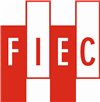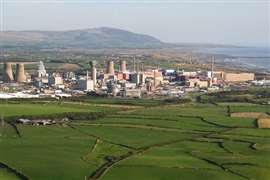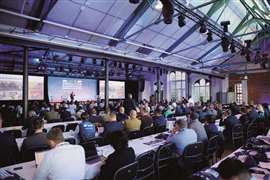Construction waste reduction: squaring the circle
06 April 2023
The transition towards a circular economy is a global challenge. Due to the rising consumption and extreme pressure on resources, society faces a growing scarcity of essential resources and a great burden on the environment.
 A study has warned that the European construction industry isn’t aligned with the EU’s plans for a circular economy (Image: Adobe Stock)
A study has warned that the European construction industry isn’t aligned with the EU’s plans for a circular economy (Image: Adobe Stock)
The transition towards a circular economy is a global challenge. Due to the rising consumption and extreme pressure on resources, society faces a growing scarcity of essential resources and a great burden on the environment.
When looking at the environmental impact of the construction sector, it is noted that it is responsible for more than 37% of the EU’s total waste generation (Eurostat, 2021), making it one of the biggest waste streams in Europe.
Therefore, it is one of the sectors where transformation towards circular solutions can have a high impact on society and reducing the pressure on our planet.
Green Deal goals
Policy makers at the EU level have been working on achieving the concept of a circular economy. The current EU Green Deal objective is to transform different industries to reduce waste generation, foster recycling and make circular products the norm in the EU.
Among the various economic sectors that are expected to contribute to this circular journey, the construction sector is one of the most promising.
The EU is addressing the environmental footprint of the construction sector mainly through the Waste Framework Directive (2008/98/EC) which sets the basic concepts and definitions for construction and demolition waste (CDW) management and prescribes Member States with CDW recovery targets.
Eurostat data for the management of the mineral fraction of CDW in 2018 show that recycling is the predominant management form in most of the EU countries.
The East-West divide
When looking at the regional differences, Southeast Europe (SEE) countries such as Bulgaria, Slovakia, Romania or Croatia are lagging behind Western countries in terms of material recovery and recycling practices.
In fact, Eurostat data show that, for instance, in Bulgaria 24% of the mineral CDW is subject to recycling, the rest (76%) is usually landfilled.
In many areas some types of waste in landfill sites could cause health and environmental risks to the residents.
Such low numbers of construction waste recycling can be explained by building practices in the past, which makes the traceability of products and materials in buildings extremely challenging.
This situation shows the importance of deploying innovative solutions for CDW management that, through the development of economically viable and scalable models, can accelerate the transition towards the circular construction in the SEE region.
 Demolition is one of the sectors producing the greatest volumes of waste material (Photo: Volvo CE)
Demolition is one of the sectors producing the greatest volumes of waste material (Photo: Volvo CE)
This is particularly the case for sectors such as roads (reconstruction and rehabilitation activities), domestic construction (building demolition) and industrial enterprises (reconstruction and demolition) which are considered the biggest generators of waste in the region.
In order to increase the availability of reused and recycled construction products across Europe, FIEC decided to participate in MOBICCON-PRO project, funded under EU Horizon Europe programme. Its overall objective is to develop, introduce and demonstrate integrated innovative circular solutions to recover resources from construction and demolition waste.
The project coordinator Glavbolgarstroy Holding AD (GBS), that is the largest construction corporate group in Bulgaria, aims to intensify CDW circularity to contribute to a full transition to a circular economy in the SEE region, in line with the Green Deal targets.
During the kick-off meeting of the project in Sofia back in January Executive Director of Glavbolgarstroy Holding AD Mrs Albena Angelova stressed the importance of the project to the region and its ambitious goals.
MOBICCON-PRO project is composed of ten partners from five European countries (Bulgaria, France, Belgium, Denmark, France, and Serbia) hopes to achieve numerous objectives over five years period, including:
- create a Territorial hub for Circularity in Sofia, Bulgaria that will act as a “one-stop shop”, embracing business, academia, research and technology organisations, civil society, public authorities, NGOs, sectoral associations, and citizens active in the field of CDW. After the end of the project ends, it is expected that the hub continues its work as an association for CDW
- management to guarantee the exploitation and replicability of the project results.
- implement innovative digital technologies within the pre-demolition process of buildings. The digital intensity of the construction sector is below 10%, meaning that the sector has a very slow absorption rate of digital technologies. Therefore, by introducing new techniques to identify, quantify and qualify materials and substances used in buildings the project will allow for better sorting and separation at source, facilitating recovery and reuse.
- establish a compact mobile pilot plant in the suburbs of Sofia to process and recycle CDW. This pilot installation will be mobile and will be based in Sofia for 2 years before being moved for testing and demonstration purposes to the territory of one of the four Bulgarian municipalities supporting the project.
- demonstrate the territorial circular concept for CDW in different locations to prove replicability: The idea is to showcase the redesigned process, the secondary construction materials and products from recycled CDW as well as their new applications in different environmental and construction setups.
- increase awareness of recycling practices and change the attitude of society towards recycling. Currently there is still insufficient infrastructure and a lack of environmental awareness in smaller cities about recycling activities. With innovative solutions proposed by project, various dissemination and communication activities will be organized through public conferences, publications and roundtables to show the advantages of recycling.
It is important to note that MOBICCON-PRO has the ambition to combine physical solutions adapted to the ground (a mobile plant) with state-of-the-art digital technologies and the active participation of industry, academia, and civil society to offer a systemic solution for CDW management.
The long-term ambition is that the results are replicated not only in Bulgaria, but also in the region.
For more information, please consult https://mobiccon-pro.eu/
CONNECT WITH THE TEAM









